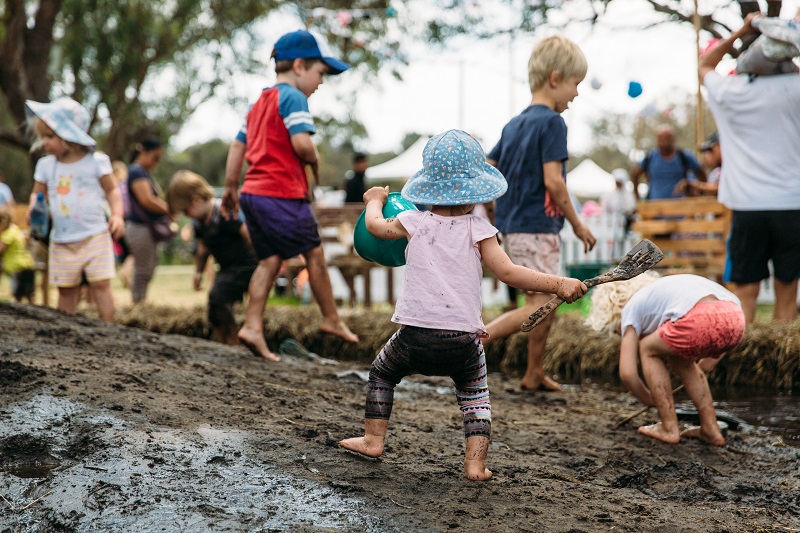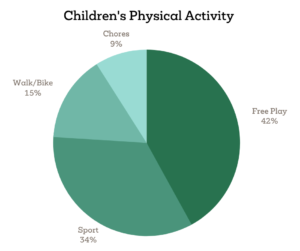"To grow up healthy, children need to sit less and play more."
(World Health Organisation)

In an increasingly sedentary world, unstructured, active, outdoor play (nature play) is an essential building block of physical, social, and emotional health, and the primary way through which children develop the skills, confidences, and competencies that support being active and connected for life.
It is also an important way children explore culture and relationships and develop a connection to place/nature/country.
The facts
- Play accounts for 42% of Australian children’s physical activity (Active, Healthy Kids Australia, 2014)
- Opportunity for free play in childhood is a predictor of social success and individual adaptability (Greve & Thomson, 2016; Barker et al, 2014; Lillard et al., 2013).
- Children who do not have opportunities to play, particularly outdoors and with other children, demonstrate increased evidence of anxiety, depression, feelings of helplessness and narcissism (Gray, 2011; Jarvis, Newman & Swiniarski, 2014).
- Children who are physically active are less likely to suffer from acute or chronic health problems such as diabetes and high blood pressure and are less likely to be overweight (Australian Early Development Census, 2016).
- Children who are physically active outdoors have enhanced psychological wellbeing and reductions in stress, anxiety and depression (AEDC, 2016).

